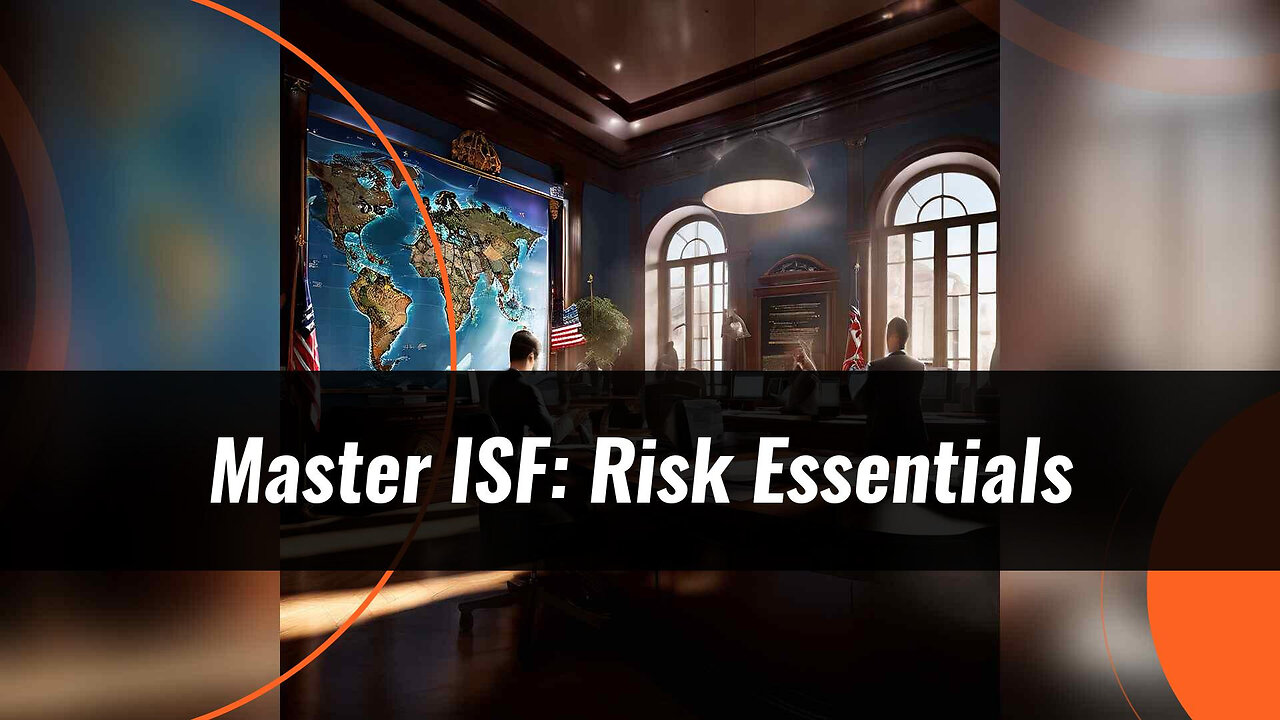Premium Only Content

Unmasking Risks: The Importance of Risk Assessments in Importer Security Filing
ISF Depot // 661-246-8217 // customs@isfdepot.com // www.isfdepot.com
Welcome back to our channel! Today, we will be discussing the significance of risk assessments in the Importer Security Filing (ISF) process for customs brokerage. Importer Security Filing, also known as ISF, is a mandatory filing requirement enforced by the US Customs and Border Protection (CBP) in which importers or their agents must submit specific trade data to CBP before their goods are loaded onto a vessel bound for the United States.
Risk assessments are an integral part of the ISF process as they help ensure the security and safety of the supply chain. By evaluating potential risks associated with imported goods, customs brokers can identify shipments that may require further scrutiny due to their higher risk profile.
Through risk assessments, customs brokers can consider various factors that may contribute to higher risk, such as the origin and destination of the goods, the commodity being imported, and the shipping route. By categorizing shipments based on risk levels, customs brokers can prioritize resources towards potential threats to national security and public safety.
A critical aspect of risk assessments in the ISF process is the customs bond. A customs bond is a financial guarantee that ensures the payment of duties, taxes, and penalties to CBP. By obtaining a customs bond, importers demonstrate their commitment to complying with regulations, including accurate ISF filings. Customs brokers can analyze the financial strength of importers and their compliance history to assess the risk associated with a particular shipment.
Mitigating risks identified through the assessment process is another essential aspect of ensuring a smooth ISF process. Customs brokers work closely with importers to develop risk mitigation strategies, which may involve additional documentation, inspections, or delaying the shipment until all necessary requirements are met. Effective communication between customs brokers, importers, and other stakeholders is crucial in implementing these strategies.
It's important to note that risk assessments are not a one-time process. With the dynamic nature of international trade, the risk landscape can change rapidly. Therefore, customs brokers continuously reassess risk factors throughout the import process to adapt to evolving risks and maintain the security of the supply chain.
In conclusion, risk assessments in the Importer Security Filing process are vital for maintaining the security and safety of the supply chain. By evaluating various factors, categorizing shipments based on risk levels, and implementing suitable risk mitigation strategies, customs brokers can effectively allocate resources and ensure compliance with regulations. Ongoing assessments enable customs brokers to adapt to changing risk landscapes and maintain the security of international trade. Thank you for joining us today, and be sure to subscribe to our channel for more videos on customs brokerage, Importer Security Filing, and international trade. Happy trading!
#usimportbond #isfcustomsbroker #uscustomsclearing #isfentry
Video Disclaimer Here: This tutorial is independent and not affiliated with any US governmental entities.
-
![CIA Documents Implicate The Soros’ As Ukraine War Criminals. Putin Agrees [EP 4467-8AM]](https://1a-1791.com/video/fwe1/b9/s8/1/g/A/g/r/gAgry.0kob-small-CIA-Documents-Implicate-The.jpg) LIVE
LIVE
The Pete Santilli Show
15 hours agoCIA Documents Implicate The Soros’ As Ukraine War Criminals. Putin Agrees [EP 4467-8AM]
1,572 watching -
 1:55:20
1:55:20
TheDozenPodcast
20 hours agoPrison Officer EXPOSES deaths in custody: Sam Samworth
22.7K3 -
 25:23
25:23
Fit'n Fire
21 hours ago $0.59 earnedThe Krink at Home Part 2 - PSA 300 Blackout Krink vs PSA 5.56 Krink
28.3K4 -
 1:01:29
1:01:29
PMG
19 hours ago $2.16 earnedTrump's Speech, SCOTUS Forces USAID Payments, and Justice For MRNA Vaccine Victims
25.3K6 -
 4:23:59
4:23:59
STARM1X16
15 hours agoSunday Night Duos
107K4 -
 1:02:11
1:02:11
The Dan Bongino Show
1 day agoSunday Special with Vince Coglianese, Rep. Tim Burchett, Rep. Byron Donalds & Vivek Ramaswamy
246K392 -
 2:29:38
2:29:38
TheSaltyCracker
15 hours agoPiss Off War Pigs ReeEEeE Stream 03-09-25
245K458 -
 1:03:55
1:03:55
Sarah Westall
16 hours agoCanada Media Mind Control to increase Assisted Suicide, Confusion & Enslavement w/ Jasmin Laine
94.2K21 -
 2:41:11
2:41:11
Canal Paulo Figueiredo
2 days agoPedro Valente Debunks The Myths of Jiu-Jitsu History
95K9 -
 2:01:46
2:01:46
vivafrei
16 hours agoEp. 254: China to Pay $24 BILLION? Who Owns Embryos? Tulsi was RIGHT on Syria! Prorogation & MORE!
210K192